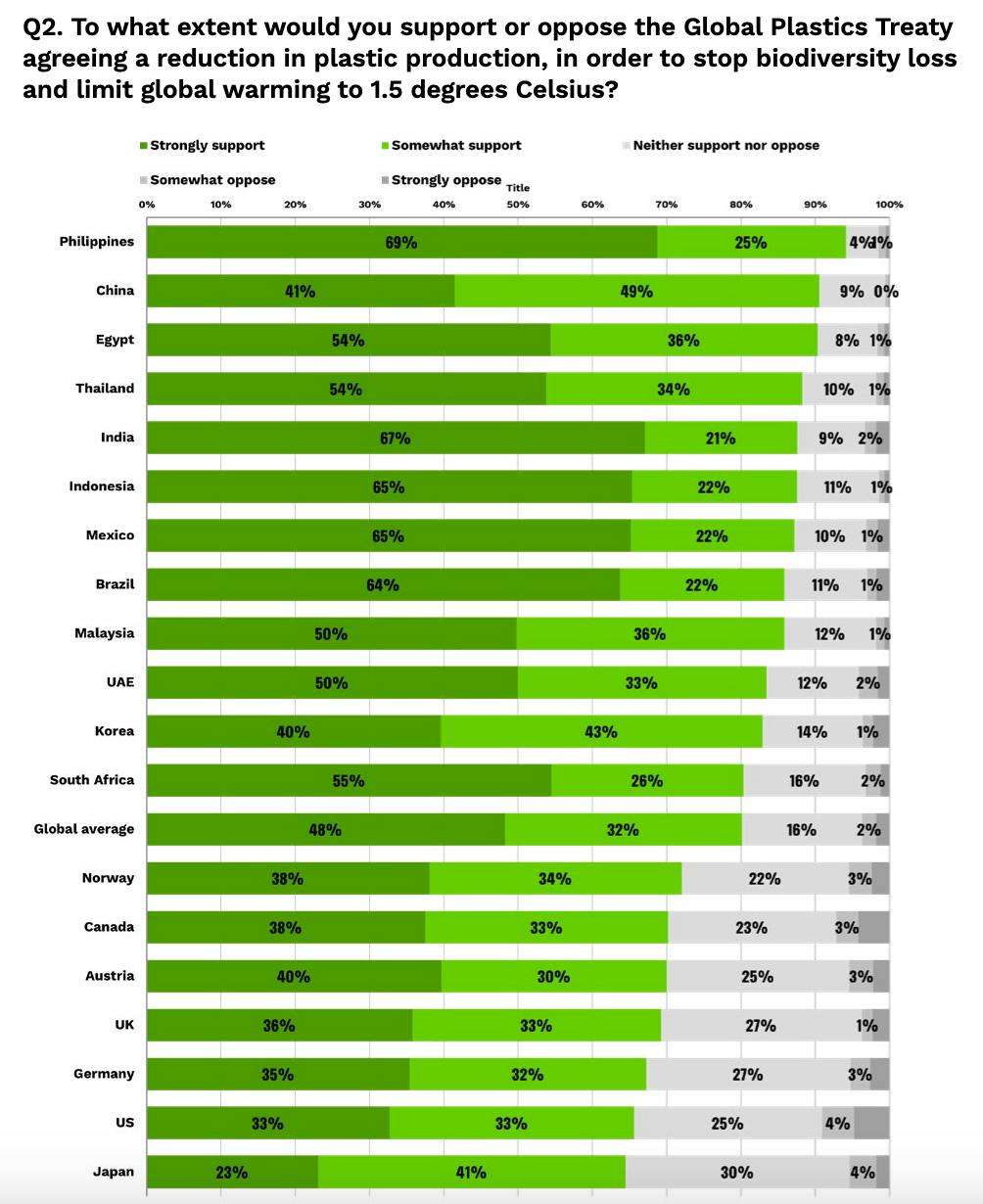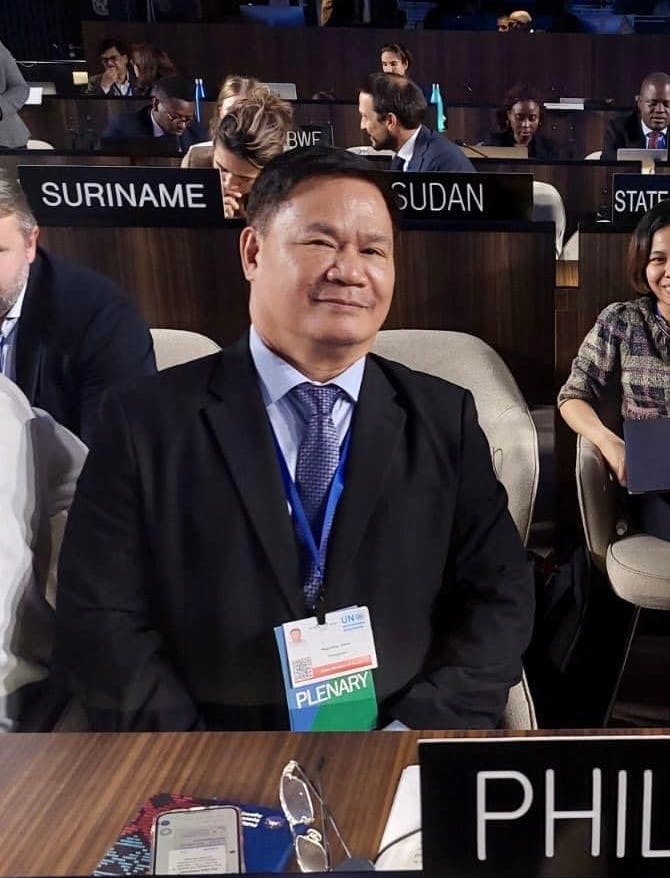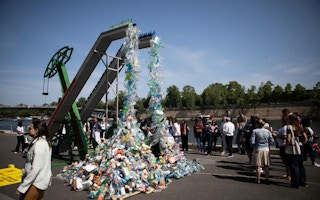Filipinos are most in favour of a global plastics treaty that would mandate cuts on plastic production, revealed a survey by environmental watchdog Greenpeace, ahead of the fourth round of negotiations in Ottawa, Canada that starts on 23 April.
The report, conducted across 19 countries, found that 94 per cent of Filipinos believe that a cap on plastic production will stop plastic pollution, prevent biodiversity loss, and limit global warming to 1.5 degrees Celsius. Respondents from China, the world’s biggest plastic producer, were also keen to turn off the tap, with 90 per cent calling for a curb on plastic production. This compares with just under 1 in 20 who oppose plastic reduction including respondents from Japan, the United States and Germany, which are also some of the world’s largest makers of the ubiquitous man-made polymer.
Despite the Philippines’ public support for plastic reduction, the government is focused on prioritising waste management and recovery solutions in treaty negotiations, said Marian Ledesma, zero waste campaigner at Greenpeace Southeast Asia.
“Negotiators are really focused on trying to put forward the Extended Producer Responsibility (EPR) Act – that is why they want to prioritise waste management and waste recovery,” Ledesma told Eco-Business.
“What we would like is a more holistic approach where it’s just as important to have upstream measures like plastic reduction or midstream interventions like reusing plastics as waste management and recovery.”

The Philippines leads the world’s top supporters of the global plastics treaty. Image: Greenpeace
The EPR Act, a key measure passed by the government in 2022, requires corporate polluters with total assets worth more than US$1.8 million to be responsible for their plastic footprint.
Albert Magalang, chief of climate change service of the Philippines’ Department of Environment and Natural Resources (DENR), denied that plastics reduction will not be a priority in the treaty negotiations, arguing that the EPR law includes upstream measures like reducing plastic at source.
“The previous position we’ve taken in the negotiations shows that we are looking at the treaty from a full lifecycle approach which will entail measures related to upstream solutions,” Magalang, the country’s lead negotiator, told Eco-Business.
Plastics reduction will be a key agenda item, particularly the development of guidance on the regulation of “problematic and avoidable plastics based on scientific criteria”, he said, adding that there will be no mention of the specific type of plastics the rules will apply to until the draft is finalised.
However, there should be an “immediate solution” for managing solid waste, especially in dealing with the unavailability of waste disposal sites as current solutions only include “palliative measures” like beach clean-ups, he told Eco-Business.
The Philippines is the world’s leading contributor to plastic pollution in the oceans, with an average of 3.30 kilogrammes per person per year, according to a 2023 study.
More than 350,000 tonnes of plastic waste enter the ocean from the Philippines annually, accounting for 36 per cent of the world’s total plastic waste.
The archipelagic country only has 245 operational sanitary landfills, based on 2021 data from the National Solid Waste Management Commission (NSWMC). Equipped to process only 15 tonnes of garbage per day, sanitary landfills can only service 478 out of 1,634 of the country’s municipalities.
The Philippines as an influential negotiator in the plastics treaty

Philippines lead negotiator Albert Magalang at the first session of the INC in Punta del Este, Uruguay in 2022, Image: Albert Magalang
Magalang said the Philippines has always actively participated in sessions of the United Nations Environment Assembly (UNEA), the world’s highest decision-making body on the environment which is mandating the plastic pollution talks. It represented Asian countries in the UNEA bureau that lead the assembly to make a political declaration on pollution, linked to the Sustainable Development Goals (SDGs) in 2017.
The country was also a co-sponsor of the Peru-Rwanda Resolution, which resulted in the establishment of an intergovernmental negotiating committee (INC) at UNEA that lead to the historic resolution to develop an international legally binding instrument on plastic pollution in 2022.
The first session of the INC took place in Punta del Este, Uruguay in 2022, followed by a second meeting held in 2023 in Paris, France.
The third session in November of the same year, which was held in Nairobi, Kenya, ended in frustration as countries that were blocking the last round of negotiations left the summit without a mandate to create a first draft of the treaty. The last negotiation meeting will happen in Busan, South Korea in November.
Want more Philippines ESG and sustainability news and views? Subscribe to our Eco-Business Philippines newsletter here.

















